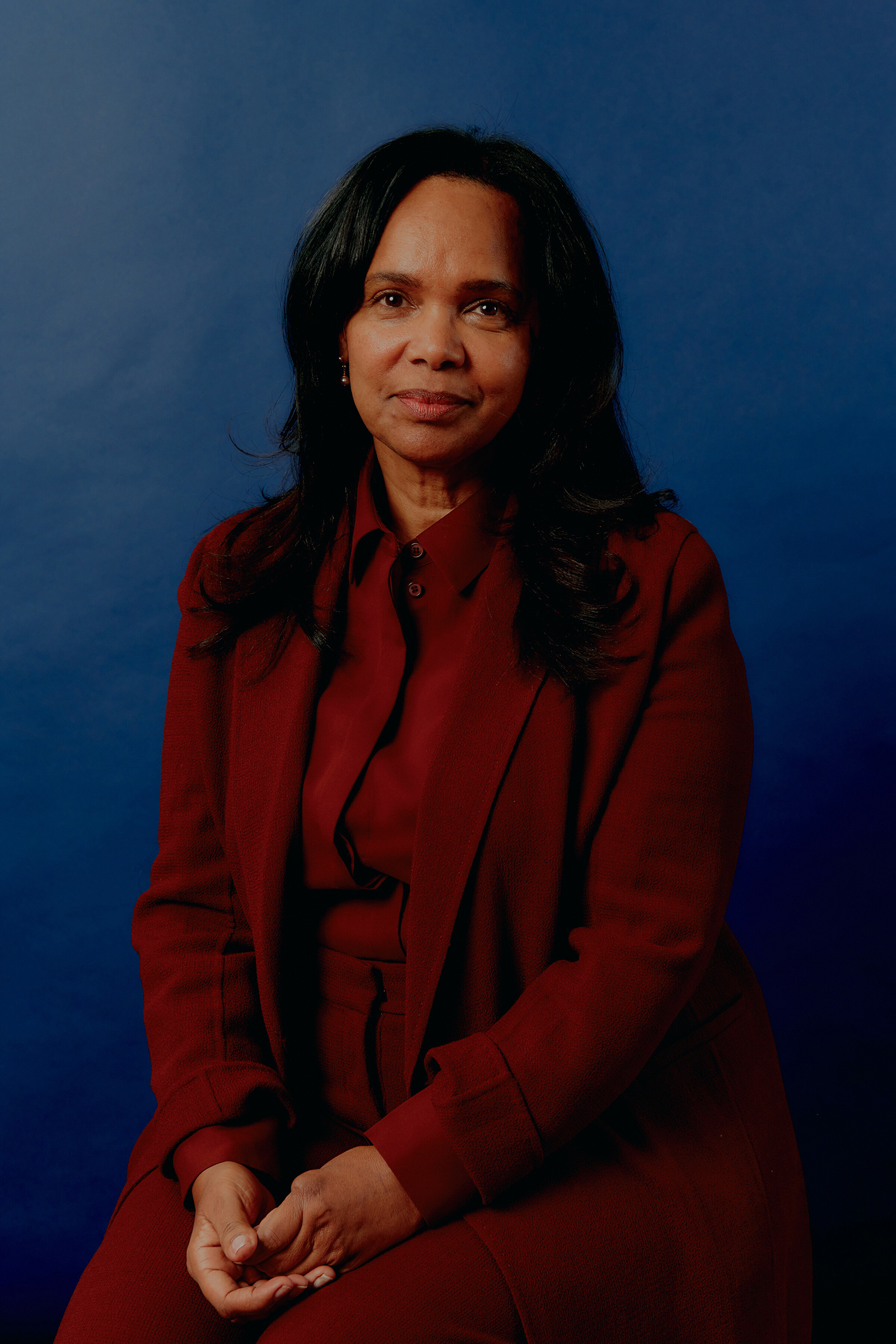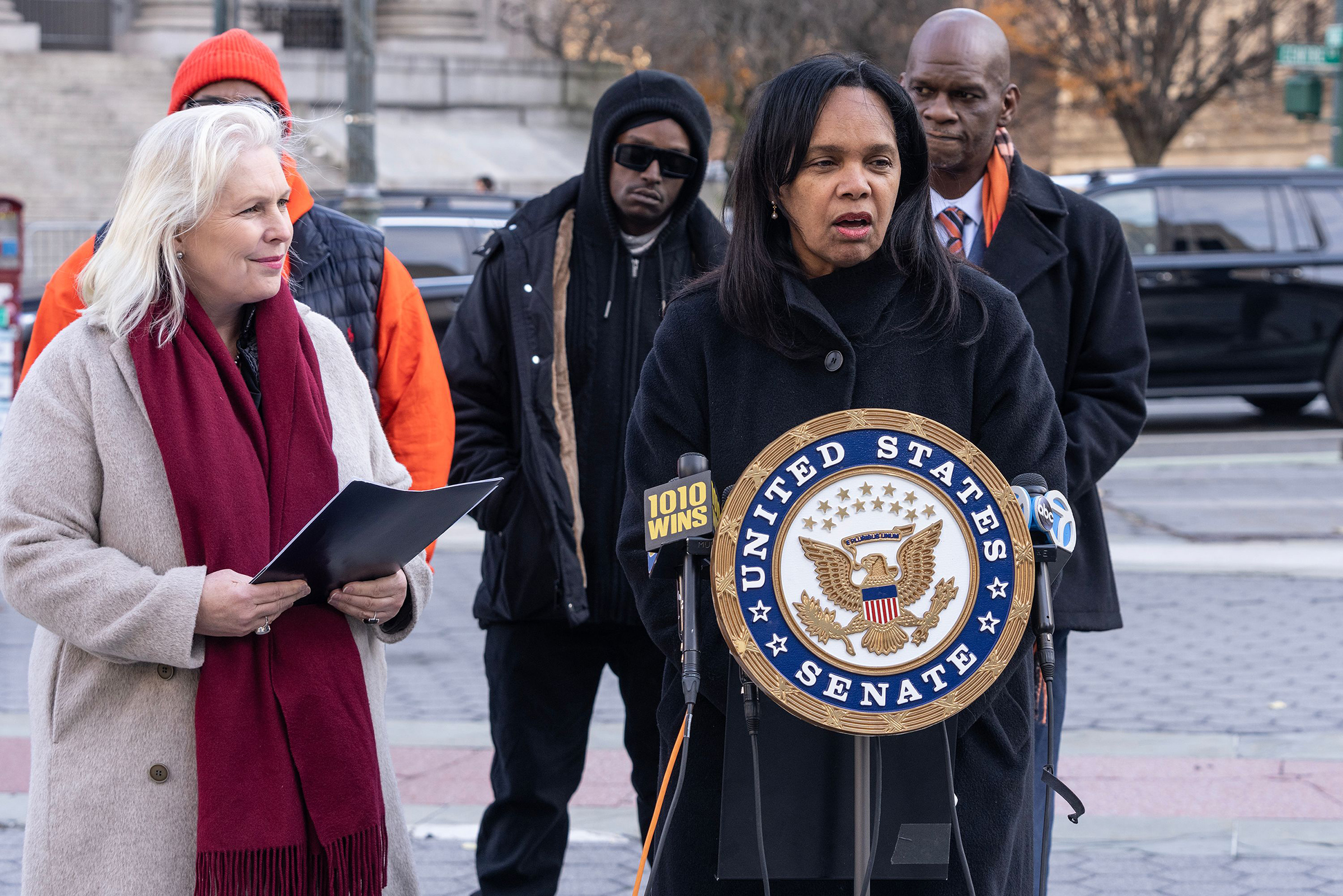
On March 9, the major U.S. credit card companies, Visa, Mastercard, and American Express, announced that they were not going ahead with implementing a new code that identifies purchases from gun stores as different from purchases from big-box or other outdoor stores. The code, approved in September 2022 by the International Organization of Standardization (ISO), which regulates the international protocols by which credit companies abide, has been the subject of intense criticism from Republican lawmakers.
The new classification was first proposed in 2021 by Amalgamated Bank, a 100-year-old U.S. bank that seeks to be a socially responsible financial-services provider. In a statement, Amalgamated’s CEO, Priscilla Sims Brown, said that it was unfortunate that “an important measure to help law enforcement deter criminal activity and gun violence has been placed on hold,” but that just as the ISO took a few months to come around to the value of the code, she’s confident “the industry will implement this commonsense way to keep our communities safe.” In a conversation with TIME in December 2022, Sims Brown explained why she thinks the code would be effective.
Amalgamated Bank petitioned the ISO to create a merchant code specifically for gun stores. I wonder if you could explain how you think it will help stop gun violence?
I think it will help with illegal gun purchases, which can lead to gun violence, because it is one of many steps in a process to identify illegal activity. There are certain patterns that gun criminals follow. If we can identify those patterns ahead of the actual crime being committed, we may be able to address the illegal purchase prior to the crime.
More from TIME
What are those patterns?
There’s a demonstrated pattern, for example, of taking out new credit cards before making a mass amount of purchases. And then there is a pattern of going to multiple stores to make those purchases so that they’re not detected by any one [store]. And then there’s a pattern of the crime itself happening fairly frequently after these purchases have been made—within weeks. And that could be true of mass shootings and that could also be true of gun trafficking, which is the practice of buying guns in one place and transporting them to another place and selling them on the black market.

So gun traffickers go to a whole different bunch of stores in, say, New Hampshire, where it’s pretty easy to buy a gun and then go to, say, New York to sell them illegally?
That’s right. In the Las Vegas [shooting], when those 59 people died, that individual spent $95,000 in gun stores prior to committing that crime, and he did it with new credit cards. He followed the pattern I’ve just described. It’s also true the Pulse nightclub murders, and several others.
Al Kelly, the former CEO of Visa, recently said he didn’t think that the ISO classification would work in the way you specify, because people could simply be buying tents or safety devices from gun stores or the gun departments of big stores. It wouldn’t necessarily be weapons, and therefore it was not going to be useful. Do you have any comment on that?
You’re right, it could be something else you bought in the gun department or gun store besides guns or ammunition. It could be a vest. We have no way of knowing what you bought. That is all true. However, when you follow a repeated practice of high-dollar amounts after taking out a number of new credit cards, I think there would be cause for questions, and those questions could lead to the detection of crime.
Read More: Congress, Guns and Porn; How Al Kelly Navigated His Last Year as VISA CEO
Have you heard from many politicians about the new protocols?
I’ve heard from people who have strong views on both sides: congressmen, senators, attorneys general. All across the board people have very strong views on this.
This application to the ISO was made before you joined Amalgamated Bank. Did it affect your decision to join knowing that you would be inheriting this quite big controversy?
While we had applied prior to my joining the bank, we had been denied one time. So I wasn’t aware of the issue until I joined. After seeing numerous gun crimes occurring, I did what many people do, no matter what roles we’re in. We all start to think about what could or should be done to try to address this, that it really is a tragedy in this country. And I think, coming from [my former role as a banking executive in] Australia, when I thought about the freedom I felt walking down the street in places where this isn’t an issue, it compelled me to want to do just our part.
Let’s talk about Australia for a second. It had a terrible mass shooting of 35 people, and the extremely conservative Prime Minister at the time introduced gun legislation. There were big protests, but now Australians generally support the suite of regulations, and there have been very few mass shootings in the 30 years since. Is there any piece of that legislation that could be transported to America?
I think we’re in a very different place than Australia was at the time that decision was made. I think about this a lot. I’m gratified to hear from legal gun owners. And I’m gratified to hear from those in law enforcement, because both groups believe in the Second Amendment. Gun owners own guns for either sport or for protection, and they want illegal activity off the street. I think those voices over time will prevail.
Are you a supporter of the Second Amendment?
Absolutely. And every other congressional amendment for that matter.
Gun-rights advocates would say that the FBI National Instant Criminal Background Checks System, the NICS, should be enough. If a person is making multiple purchases at gun stores in rapid order, then there would be a lot of NICS verifications going through and therefore, someone at the FBI background check should flag it. Do you not agree with that?
I don’t know enough to comment on that process.
We live in an era where businesses and business leaders are being asked by their employees and shareholders to take a position on political issues. How are you managing that cultural shift?
Look, I think it’s important that we take positions on issues that are appropriate for an employer and appropriate for a financial-services firm. There are issues that are outside of our swim lane and outside of that which we are obligated either by regulation or about our commitment to social responsibility. And I think it’s important to stay in our lanes.
Why are guns in your lane?
I think it really goes to the obligation I have as a financial-services firm to know my customer. There’s a KYC [Know Your Customer] rule. That’s one reason. Another is I think we’re obligated not to knowingly finance illegal activity, whether that be gun-related or whether that be human trafficking or whether that be financial crimes of other types, like money laundering or fraud. These are all things that the Patriot Act was designed after 9/11 to encourage us, in fact, obligate us to address, and that is why I think it’s an appropriate conversation.
More Must-Reads From TIME
- The 100 Most Influential People of 2024
- The Revolution of Yulia Navalnaya
- 6 Compliments That Land Every Time
- What's the Deal With the Bitcoin Halving?
- If You're Dating Right Now , You're Brave: Column
- The AI That Could Heal a Divided Internet
- Fallout Is a Brilliant Model for the Future of Video Game Adaptations
- Want Weekly Recs on What to Watch, Read, and More? Sign Up for Worth Your Time
Contact us at letters@time.com